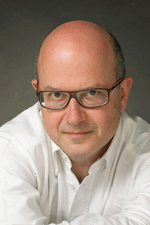> [Archived] Interviews

The Sixth Edition of the Festival of Orchestras in France
Mr. Philippe Fanjas, two days ago the sixth edition of the Festival of Orchestras ended. Between 15thand 24thNovember, 2013, a great number of symphonic ensembles participated in this musical project. What is its goal?
The main goal of the festival is to emphasize, to focus the audience's attention on the orchestras' performance. The work of a symphonic orchestra mainly consists of coordinating concerts, but since the beginning of the 21st century, besides concerts, it also has the duty to put forward a series of concerts for the from school audience, for the students, but also for the general public, in order for them to rediscover music from a different angle. The agenda of the festival includes concerts for students of all ages and performances which build a bridge between the common culture and the musical culture for the general public - workshops for the entire family, as well as mini recitals in hospitals, at the bedposts of the ill.
The cultural-educational side is very important for this project.
Yes, it is, in fact, essential. The main idea of this festival is simple: you could say the orchestra represents two things - first, the orchestra is a collective artist, who must perform at its best in works much beloved by the audience and second, the orchestra is one of the cultural artists that belong to a certain place. To that effect, a series of civic projects, intended for the general public, are being promoted and they make an impact on the targeted area, much as private companies do.
The orchestra is in fact one of the main actors of a community, of a town, of the region where it is located.
Mr. Philippe Fanjas, how could you describe the sixth edition of the Festival of Orchestras?
It wasn't really a festival. I couldn't highlight the trajectory of the edition of 2013. For us, this project represents a reunion of the orchestras, containing all the three elements: concerts, educational performances and a combination of the two. There were many special moments during the activity of each and every orchestra. It might take too long for me to sum them up right now. What could be emphasised is the special attention given to those in hospitals. Many orchestras sent musicians to the sick people lying on hospital's beds. There were a lot of played up performances and I think in particular of the Lyon National Orchestra , which dedicated the whole week to a series of participatory concerts, held in train stations or performed by the musicians on the train rides, accompanying the travellers on the route Lyon-Paris. There was a wide variety of events of different types. I'd also like to mention that the orchestras from Picardie and Bretagne adjoined in order to present Requiem, by Verdi, within a European project. To this project also adjoined the Brighton Festival Chorus and soloists from the Young Artist Programme Royal Opera House Convent Garden. This is a very important European programme, which allows exchanges between musicians from different countries on a cultural basis and which subserves the edification of the European reality. The project 'The Festival of Orchestras' was a success; even from the beginning, the halls have been full. We are very proud of this triumph. Besides, we're talking about long-time work. The Festival of Orchestras winds its way through other projects of the symphonic ensembles and its goal is to approach the audience in a careful, friendly manner, in order to assess its long-term success. What I can add is that the French Association of Orchestras, in parallel with the Festival of the Orchestras, initiated a survey on the audience participating to the performances of the symphonic ensembles and its results will better disclose certain aspects that we will take into consideration for the following editions.
Have you established any projects for the seventh edition?
Yes, of course, but I am not at liberty yet to reveal any of them. The next edition will take place in 2015, not 2014. That is all that I can tell you for the time being.
Translated by Zbarcea Bianca-Lidiaand Elena Daniela Radu
MTTLC, The University of Bucharest














